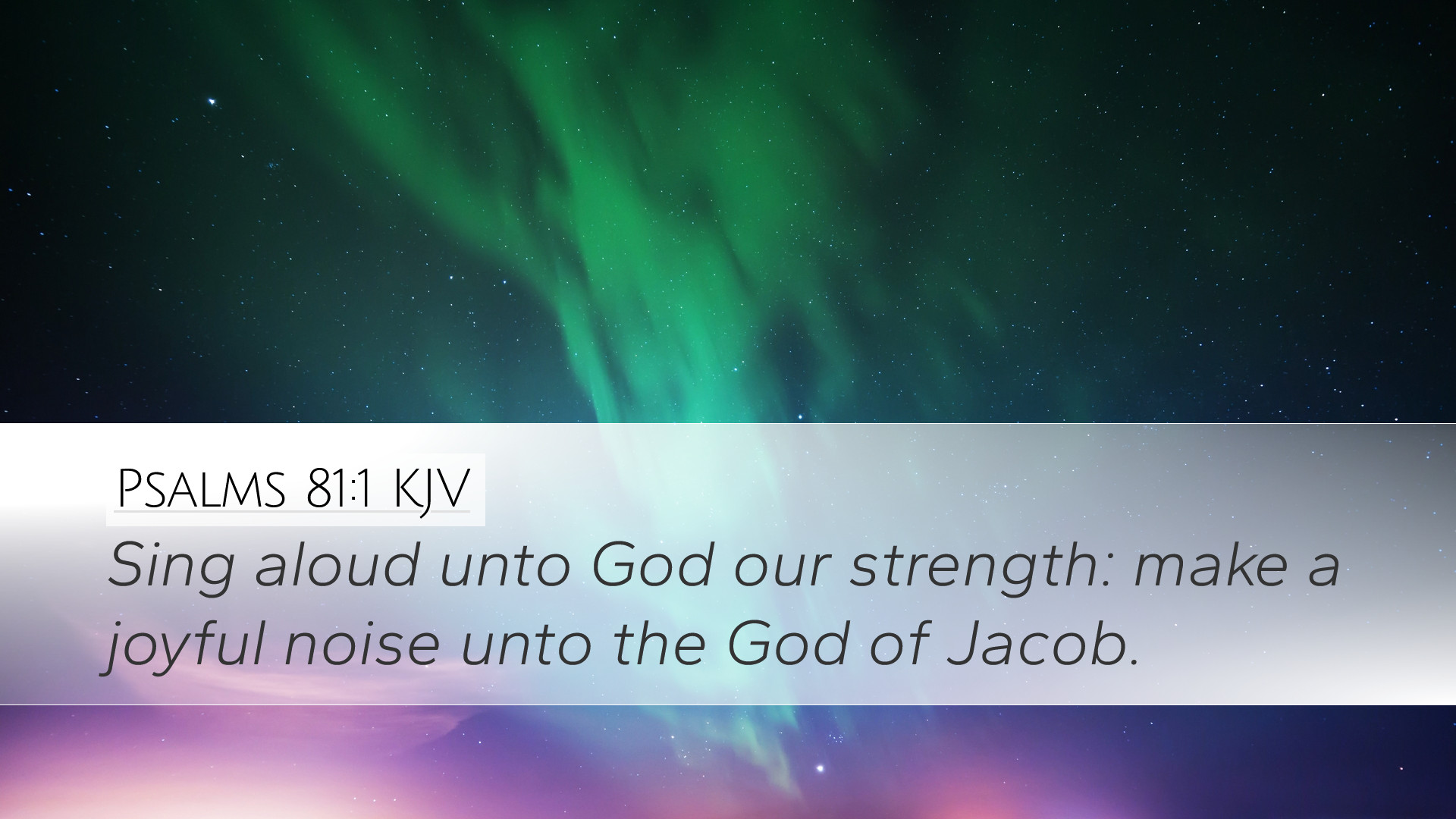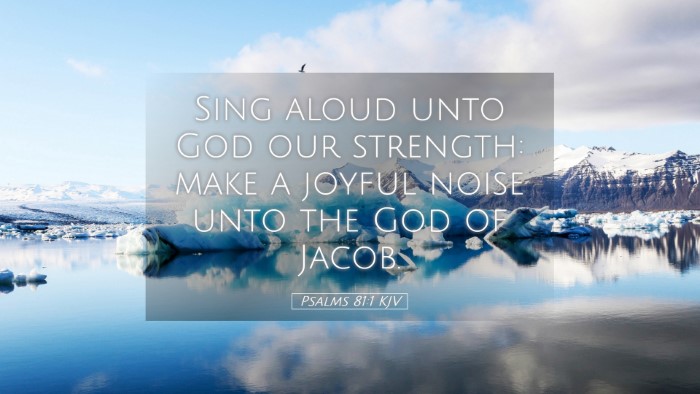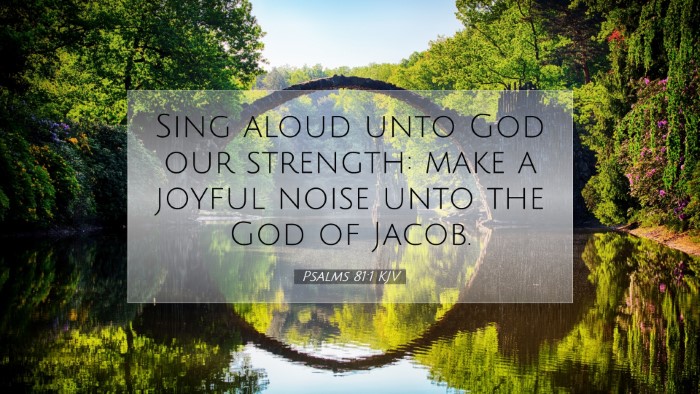Commentary on Psalms 81:1
Verse: "Sing aloud unto God our strength: make a joyful noise unto the God of Jacob."
Introduction
This verse serves as a compelling exhortation to worship, inviting the faithful to express their joy and reverence towards God. In exploring the nuances of this scripture, we delve into the meanings of joy and strength in worship and how they relate to the understanding of God's identity as the God of Jacob.
Exegesis and Insights
In this verse, the call to "sing aloud" highlights the significance of vocal expression in worship. This directive speaks not only to the act of singing but emphasizes the heart and spirit behind the worshiper’s voice.
Matthew Henry's Commentary
Henry brings to light several key elements in his analysis of this verse:
- The Nature of Worship: He emphasizes the importance of worship being an act of the heart, suggesting that both contemporary and historical expressions of praise flow from the true acknowledgment of God's might and providence.
- Joy in Worship: Henry notes that the term "joyful noise" signifies both the emotional and volitional aspects of worship. It is not merely an act of singing but an expression of joy sparked by a deep sense of gratitude for God's strength.
- The God of Jacob: The mention of Jacob serves as a reminder of God's faithfulness to His people. Jacob represents the nation of Israel and the covenantal relationship established by God, underscoring why the Israelites should proclaim His strength with joy.
Albert Barnes' Commentary
Barnes provides a practical reflection on the verse, emphasizing several points:
- Invitation to All: He interprets the call to "sing" as inclusive, inviting all followers of God to participate in worship, transcending social and individual boundaries.
- Strength as Foundation: For Barnes, the "strength" referenced is both physical and spiritual. God is our protector and source of support, prompting believers to raise their voices in gratitude and recognition of His providential care.
- Cultural Context: He advocates for understanding this verse in the context of ancient Israelite worship, where communal singing was integral to their expressions of faith. The emphasis on "noise" indicates both fervor and passion in worship.
Adam Clarke's Commentary
Clarke adds to the discussion by highlighting the diverse implications of the text:
- Dynamic Worship: He argues for a robust, dynamic understanding of worship where believers are encouraged to praise God energetically, reflecting their inner joy and outward expressions.
- Exclusivity of the Message: Clarke asserts that referring to God specifically as the "God of Jacob" indicates a particular relationship. It implies that God's strength is intertwined with covenantal promises made specifically to His chosen people.
- Historical Reflection: He encourages readers to reflect on the historical acts of God in Israel's past, prompting a response of praise that is informed by memory and recognition of God's past faithfulness.
Theological Implications
The implications of Psalms 81:1 extend beyond the immediate text, invoking deeper theological themes:
- Worship as Response: The verse implies that true worship is a response to God’s nature and His mighty acts in history. It calls the faithful to recognize the attributes of God and respond vocally with joy.
- The Theology of Strength: God is portrayed as a source of strength, suggesting believers find their identity and support in Him. This perspective leads to an understanding of God’s omnipotence and willingness to be involved with humanity.
- Covenantal Relationship: The reference to Jacob emphasizes the ongoing covenants God has made, which remain relevant today. This relational aspect of worship invites believers into a deeper understanding of their own position within the familial structure of God's people.
Contemporary Application
In modern worship settings, the principles outlined in Psalms 81:1 remain significant:
- Encouragement of Joyful Worship: Pastors and worship leaders are encouraged to cultivate an atmosphere where congregations feel free to express their faith joyfully, regardless of their musical talent.
- Communal Expression: This verse reminds communities of the importance of coming together in faith to raise their voices in unity, reflecting the corporate nature of worship.
- Integration of Thankfulness: In sermons and teachings, exploring the themes of gratitude tied to God's covenantal faithfulness can inspire congregants to express their praise meaningfully.
Conclusion
Psalms 81:1 serves as a profound call to worship that resonates across ages. With its rich layering of meaning drawn from public domain commentaries, this verse continues to challenge and encourage believers to respond to God’s strength with joyful praise. It not only provides a reminder of God’s faithfulness but also invites every worshiper to participate actively, bringing their whole being into the experience of communal and individual worship.


